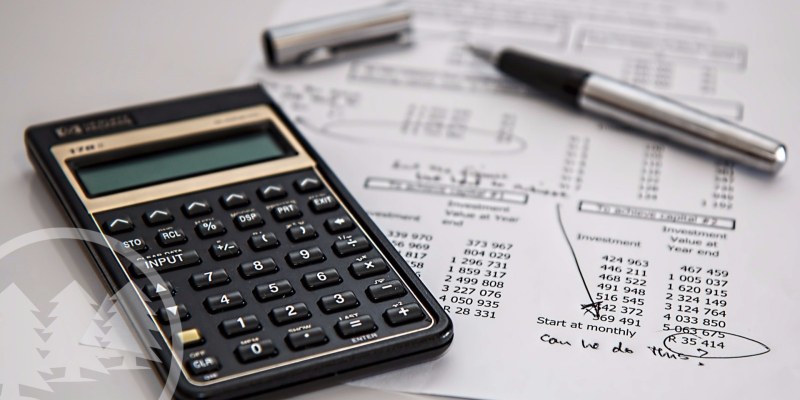If you have purchased a home or condo, you are likely paying a monthly fee to your association. The purpose of this HOA fee is to cover repairs and maintenance on the outside of your home or in common areas. While many homeowners wish they could lower their taxable income with HOA fees, the truth varies depending on the situation. So, are HOA fees tax-deductible? Find out below.
Are HOA Fees Tax-Deductible? Solved!
You can almost hear the collective sighs of homeowners everywhere when tax season comes rolling around. The grief is understandable, though. You are already paying a lot of bills — water, electricity, HOA dues, etc. — that taxes can feel like an added financial burden. It would be great if at least one of those were at least deductible on taxes.
It is only normal for you to wonder if HOA fees are tax-deductible. After all, it is something you pay for on a regular basis and that amount can really add up over the course of a year, especially if your HOA fees are on the expensive side.
So, are homeowners association fees tax-deductible? The answer to this query is not as simple and can depend on a number of circumstances. Let us take a look at each one:
1. Private or Personal Year-Round Home
 If you are using your property as a private home — and you utilize it year-round as your main residence — then, unfortunately, the homeowner’s fee cannot be deducted from your taxes.
If you are using your property as a private home — and you utilize it year-round as your main residence — then, unfortunately, the homeowner’s fee cannot be deducted from your taxes.
This is because your HOA is considered a private entity. Even if some of the fees are directed towards common areas, the IRS views your full fee as non-deductible.
Most homeowners fit in this category. Although the fee itself is not tax-deductible in this scenario, many other expenses relating to your home are. These can include your mortgage interest and real estate taxes. Be sure to consult with a tax professional regarding which deductions you still qualify for as a homeowner.
2. Use of Your Home or Condo as a Rental Property
 HOA fees are not tax-deductible when you use your home year-round, but what about if you rent it out? Are HOA fees tax-deductible for rental property? This is where things get a bit more complicated.
HOA fees are not tax-deductible when you use your home year-round, but what about if you rent it out? Are HOA fees tax-deductible for rental property? This is where things get a bit more complicated.
Some owners choose to use their home or condo as a rental property to house tenants. If this is the case for you, the rules immediately change.
Because the IRS views the expense of an HOA fee to be a necessary cost of maintaining the property, any property that is used as a rental property is eligible for a tax deduction on the HOA fees. In other words, HOA fees are deductible as a rental expense.
You need not rent out your entire home for HOA fees to become deductible, too. If you only rent out a portion of your home — such as a garage or basement — you can deduct a percentage of the HOA fees relative to the rest of the house.
There is an exception to the rule on rental properties. Special assessments for improvements are not tax-deductible. Special assessments are typically charged by the HOA to cover unforeseen situations or emergencies. This could be the result of a disaster or some other cause that is not covered by insurance or an HOA’s reserve fund. If the special assessment is used for repairs or maintenance, it is normally tax-deductible. But if it is used for improvements, it is non-deductible.
If you have a home or condo that you rent out to tenants, be sure to fill out a Schedule E form when completing your taxes each year. When in doubt, it is best to consult with an accountant.
3. Use of Your Home or Condo for a Business
If you are using your home or condo for a business, the rules regarding taxes may be different. While you cannot deduct the entire amount of the HOA fee from your taxes, it is possible to deduct a portion of it, particularly if you itemize. Any percentage used in conjunction with this business or office may be tax-deductible.
This rule also applies if you only have a small office in your home. For instance, if you use 10% of your home as an office, the same percentage of HOA fees is deductible. The same goes for mortgage interest, property taxes, and even utilities. Again, if you have any questions, it is a good idea to seek out the help of a professional.
4. Use of Your Home as a Part-Time Home or Vacation Property
 Some property owners only use their houses as a vacation home. This means they do not occupy it for most of the year, instead choosing to rent out the property for the remaining unused months.
Some property owners only use their houses as a vacation home. This means they do not occupy it for most of the year, instead choosing to rent out the property for the remaining unused months.
This type of setup is a special case when it comes to HOA tax deductibles.
If you are part of this category, the IRS will only consider the months during which your property is in use as a rental property as being eligible for a tax deduction of the HOA fees.
If the home is rented out for six months out of every year, the fees paid during that time are considered tax-deductible, but the fees paid while you are living in the home are not tax-deductible.
Stay On Top of Your HOA Tax Deductibles
Taxes can be complicated when it comes to owning a home or condo that is a part of a homeowners association. Are HOA fees tax-deductible? As a general rule, no, fees are not tax-deductible. However, there are special cases, as you now know.
Filing your taxes can be financially stressful. As a homeowner, it is part of your responsibility to know when your HOA fees are tax-deductible and when they are not. This lets you avoid any possible qualms that may arise in the future.
When in doubt, it is always helpful to speak with a tax professional about your individual circumstances to be sure that you are getting your full tax break. If you have any questions or need further help, we are just one call away.
RELATED ARTICLES:
- HOA Tax Returns: How To Prepare For Tax Time
- The Pros And Cons Of Low HOA Fees
- What Happens If You Don’t Pay HOA Fees?






